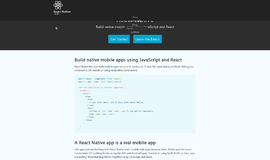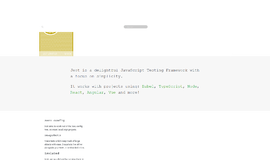How to choose the right Third-party controls for .Net applications.
In software development, a third-party control or component is a reusable software component that is developed for sale or free distribution and used by another party other than the original developer or development team.
The history of third-party controls can be traced as far back as the days of Visual Basic, a third-generation event-driven programming language and integrated development environment (IDE) from Microsoft. Microsoft envisioned Visual Basic to be comparatively easy to learn and use with a wide range of unique features for the development of applications for web, PC and portable mobile devices. Notwithstanding , the third-party software control market flourished and still flourishes due to the belief by programmers that component-oriented development can save time and increase the efficiency and the quality of developing applications.
Indeed, robust third-party controls can actually save development time while enhancing productivity and allowing developers to concentrate on areas of expertise. However you need to remember that you might not have total control over how the component works. In most cases there are a number of things to consider when building applications and using third-party components in the process. Some of the questions you want to address before buying or using one might include:
- The learning curve. How long will it take for me or my team to learn the new component? Am I sure the components I want to use do not take much time to configure and deploy? Will I save time and energy if I go about developing it internally?
- How flexible and intuitive is the component? Can we adjust it to suit our needs? Do we need access to the source code or not? This is important because once you start utilizing a component it can be hard to shift to something else. A good case in point is a web control that doesn't support a new browser version. Can you upgrade it internally or do you have to buy a new upgrade from the vendor? Also check your platforms i.e. Visual Studio and other dependencies such as IIS. Do you have to restart your tools every time you make a minor modification to the component?
- What kind of documentation am I getting? You need to check the documentation available for the product. Some controls might lack any kind of appropriate documentation and user manual. If the manuals are not available can you get them for free or does it come at an extra cost? How often is the documentation updated and maintained? Some regularly updated components might have missing documentation which naturally should be attached to the enhancements or upgrades. If you are also particular about language, check for user friendly documentations and not just mechanically drafted documents that take ages to understand.
- Check and recheck the licensing terms and be sure it is something you can live with. If you are working with several large control packages which come with a hefty price tag, and you care about a royalty-free developer license, then investigate and see if what you are getting comes the way you want it.
- What about Customer Support? Is it decent and reliable? Can you have access to both telephone and online support? Is the bug fixing schedule regular and convenient? It is good to place a premium on support so that you can get help easily when you need it.
- What kind of experience do you and your team want to take away from the project? If your deadline is not so tight and you want to increase your team’s development experience, you might want to see if you can to build your controls instead of using existing ones. The experience you acquire from this can be advantageous to the team in the long run.
- Finally, what about forums or communities? These are not obligatorily but it can be quite useful because you can learn from people’s experiences especially when documentation and support for a third-party component is hard to come by. The more vibrant a community is, the more likely you can get help when stuck. Knowledgeable and responsive communities can make life easier for everyone.
It's useful for developers or software development teams think of components in software development as pieces of a jigsaw puzzle that should help to complete and attain the overall picture. You will need to work with robust third-party components that can help you to efficiently achieve this objective.
In conclusion, DevExpress provides trial versions of products for evaluation. During this period prospective clients can raise queries with the support team and expect to receive feedback which indicates a decent level of professionalism and service.
You can find many great third-party suits in our platform including infragistics toolkit, devexpress, componentone and many more
Recent Stories
Top DiscoverSDK Experts

Compare Products
Select up to three two products to compare by clicking on the compare icon () of each product.
{{compareToolModel.Error}}


















{{CommentsModel.TotalCount}} Comments
Your Comment